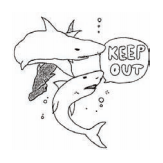USP 2006 Inglês - Questões
Abrir Opções Avançadas
“CHINA has begun to enter the age of mass car consumption. This is a great and historic advance." So proclaimed the state-run news agency, Xinhua, last year. Environmentalists may feel a twinge of fear at this burgeoning romance with motoring. But a rapid social and economic transformation is under way in urban China, and the car is steering it.
In 2002 demand for cars in China soared by 56%, far more than even the rosiest projections. The next year growth quickened to 75%, before slowing in 2004 (when the government tightened rules on credit for car purchases) to around 15%. But in a sluggish global market, China’s demand remains mesmerising. Few expect this year’s growth to dip below 10%. As long as the economy goes on galloping at its current high-single digit clip, many expect car sales to increase by 10-20% annually for several years to come.
(The Economist June 4th 2005)
According to the passage, Xinhua
“CHINA has begun to enter the age of mass car consumption. This is a great and historic advance." So proclaimed the state-run news agency, Xinhua, last year. Environmentalists may feel a twinge of fear at this burgeoning romance with motoring. But a rapid social and economic transformation is under way in urban China, and the car is steering it.
In 2002 demand for cars in China soared by 56%, far more than even the rosiest projections. The next year growth quickened to 75%, before slowing in 2004 (when the government tightened rules on credit for car purchases) to around 15%. But in a sluggish global market, China’s demand remains mesmerising. Few expect this year’s growth to dip below 10%. As long as the economy goes on galloping at its current high-single digit clip, many expect car sales to increase by 10-20% annually for several years to come.
(The Economist June 4th 2005)
The passage suggests that China’s embrace of the car is likely to make environmentalists
“CHINA has begun to enter the age of mass car consumption. This is a great and historic advance." So proclaimed the state-run news agency, Xinhua, last year. Environmentalists may feel a twinge of fear at this burgeoning romance with motoring. But a rapid social and economic transformation is under way in urban China, and the car is steering it.
In 2002 demand for cars in China soared by 56%, far more than even the rosiest projections. The next year growth quickened to 75%, before slowing in 2004 (when the government tightened rules on credit for car purchases) to around 15%. But in a sluggish global market, China’s demand remains mesmerising. Few expect this year’s growth to dip below 10%. As long as the economy goes on galloping at its current high-single digit clip, many expect car sales to increase by 10-20% annually for several years to come.
(The Economist June 4th 2005)
The passage says that the demand for cars in China
“CHINA has begun to enter the age of mass car consumption. This is a great and historic advance." So proclaimed the state-run news agency, Xinhua, last year. Environmentalists may feel a twinge of fear at this burgeoning romance with motoring. But a rapid social and economic transformation is under way in urban China, and the car is steering it.
In 2002 demand for cars in China soared by 56%, far more than even the rosiest projections. The next year growth quickened to 75%, before slowing in 2004 (when the government tightened rules on credit for car purchases) to around 15%. But in a sluggish global market, China’s demand remains mesmerising. Few expect this year’s growth to dip below 10%. As long as the economy goes on galloping at its current high-single digit clip, many expect car sales to increase by 10-20% annually for several years to come.
(The Economist June 4th 2005)
Which of these statements is true according to the passage?
Australians are not known for their love of boat people
They famously turned away a small group of Afghan refugees at the height of the war and rather amusingly, ran a scare campaign featuring crocodiles and sharks to deter would-be immigrants. But if global warming continues at its current rate, neighbouring Pacific islands could be lost to floods and Australia will be facing a new kind of intruder: climate refugees.
Although the Red Cross produced a report four years ago estimating that 58 per cent of refugees are caused by environmental factors, no one has made any attempt to tackle the issue (1). Oxford University’s Norman Myers recently claimed that there could be an estimated 150 million environmental refugees within the next 50 years, and half of these could land on Australia’s doorstep. But the UN refuses to grant them refugee status, and aid groups and environmentalists squabble over whose responsibility they are.
(DAZED & CONFUSED July 2005)

According to the passage, Australians
Carregando...